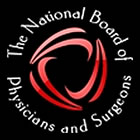 Today’s the day that The National Board of Physicians and Surgeons (NBPAS) officially launches. Briefly stated, it’s an alternative certification organization, set up by Dr. Paul Teirstein and a group of physicians, mostly cardiologists, who strongly objected to the Maintenance of Certification assessment track established by the American Board of Internal Medicine (ABIM).
Today’s the day that The National Board of Physicians and Surgeons (NBPAS) officially launches. Briefly stated, it’s an alternative certification organization, set up by Dr. Paul Teirstein and a group of physicians, mostly cardiologists, who strongly objected to the Maintenance of Certification assessment track established by the American Board of Internal Medicine (ABIM).
You can read more about it in my post from last week, “Scalpel…Suture…Suction…Pencil?” and in Dr. Teirstein’s New England Journal of Medicine article, titled “Boarded to Death — Why Maintenance of Certification Is Bad for Doctors and Patients.”
I’ll be following the progress of this initiative, but a few recent articles and developments bring up some interesting points.
One very vocal critic of the MOC process has been cardiologist Dr. Westby Fisher. And while Dr. Wes admires Dr. Teirstein’s efforts, he has reservations about the possibility of success for an organization, concluding instead:
“In my view the only way to truly ‘change’ MOC is to have a coordinated effort from all specialty societies to insist our legislators remove the portion of our new health care law that requires we participate in a ‘physician registry’ that robs not only practicing physicians, but patient care itself.”
A fact of the MOC process is that it was written into the Affordable Care Act and, as such, has become a de facto requirement for physicians. Even though a physician is “Board Certified,” something that is revisited every ten years, the MOC process now requires the fulfillment of certain requirements every two years, activities which the 21,000 physicians who signed Teirstein’s petition view as “complex, have questionable value, and detract from more worthwhile pursuits, including patient care and other educational activities.” If a physician does not complete these activities, he/she is labeled, “certified, not meeting MOC requirements,” and that doctor’s employer/hospital system will most likely deem that unacceptable.
Dr. Wes has company. A number of physician-bloggers have chimed in as critics of the MOC process, for example, Dr. John Mandrola whose blog post, “A scary new medical intervention…,” details his objections. And Dr. Seth Bilazarian in his article, “Board Recertification: There Has to Be a Better Way.”
Another strong supporter of Dr. Teirstein is Dr. Robert Harrington, Professor and Chair, Department of Medicine, Stanford University, a regular contributor to theheart.org-Medscape (as are Drs. Mandrola and Bilazarian), and the Committee Chair for the past two Annual Scientific Symposia of the American Heart Association. He commented to me earlier today:
“I’m hugely supportive and appreciative of Paul’s leadership in this area. This is a critically important time in medicine for leaders to address how best to assure lifelong competency in clinicians so that the public can be confident in the profession’s ability to keep current with a rapidly evolving knowledge base.”
However, a cautionary note, posted by Dr. Edward J Schloss on his Twitter feed, refers to Senator Rand Paul’s attempt to establish a new certification organization for ophthalmology back in 2010. Without the backing of a national professional organization, any certification board may not have the ability to convince hospitals, insurers, government agencies, and, oh yes, PATIENTS, that its imprimatur has meaning. I would point out, however, that Senator Paul’s organization consisted of himself, his wife and his father-in-law. The National Board of Physicians and Surgeons has recruited, as mentioned, 21,000 to sign a petition criticizing the MOC, and almost 7,000 physicians pledging to boycott the ABIM requirements.
Perhaps the launch and strong support of Dr. Teirstein’s alternative will have the effect of bringing the professional organizations to the table and working with the ABIM to modify and “smarten up” these regulations, something posited by Dr. Westby Fisher. To that end, and very possibly in response to the unrest noted above, the American College of Cardiology just issued a “Follow-Up on ABIM Maintenance of Certification” in this month’s JACC, “intended to update the ACC membership on progress in our efforts to encourage the ABIM to modify the MOC process.” Several meetings between the ACC and ABIM have been taking place and this month over a dozen new members were appointed to the ABIM cardiology board “following a broad canvas of stakeholder recommendations, including those of the ACC.”
Many questions, but one thing for sure: this is definitely an issue that will not be going away anytime soon. As we like to say, stay tuned….




CME hours or a 2 day clinical review course for certain sub specialties,as endocrinology will be more appropriate alternative to MOC instead of the cumbersome,time consuming and chaotic requirements of the ABIM.
One generation ago Board eligibility was sufficient for hospital privileges. The public trusted us to keep up and do the right thing. The public still trusts us. CME should be enough. We have undermined our eduction by requiring constant recertification. We have distracted ourselves from more important work. Mature physicians need to advance healthcare. It will not be advanced by recertification.
I have never displayed my ABIM certification on the office walls as I truly believe it is not a measure of how good of a physician I am. We physicians and the hospitals and the society got it wrong too not only ABIM. Let us reform for the better quality healthcare not just a waste of time and money.
As physicians, we work hard to do the best for our patients. We recognize that keeping current on the changes in modern medicine is important, but it is our duty to reject blatant silliness and time sinks. “Maintenance of Certification” just wastes time without improving our care of patients. We should boycott the busy work and get back to caring for our patients.